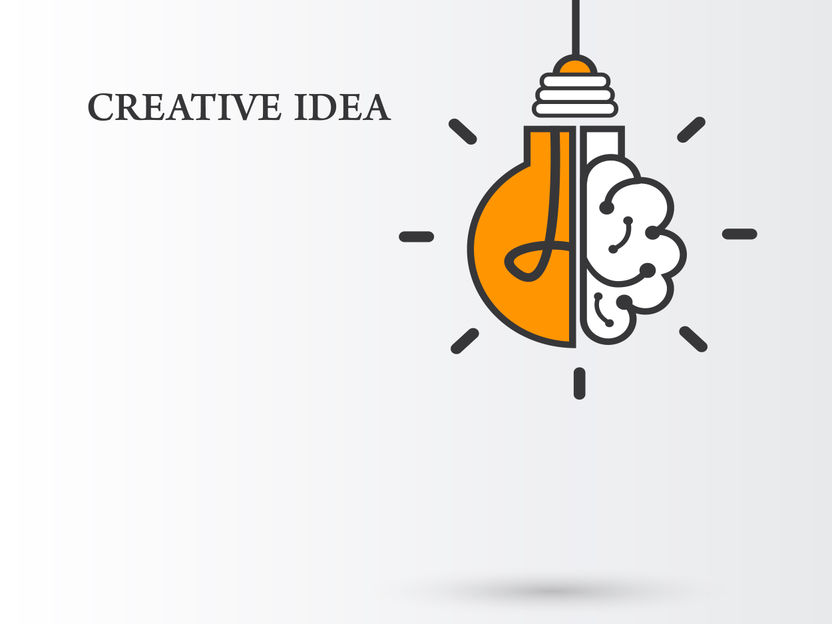Creativity can be specifically promoted through brain stimulation
New insights into the neurobiology of creativity
Advertisement
Creative thinking forms the basis for many innovations in business, science, culture or everyday life. Despite its importance, the neurobiology of creativity has been researched very little. Scientists at Jacobs University have now measured our ability to develop new and original solutions – and discovered, among other things, that creativity can be specifically promoted through brain stimulation.

Creativity can be specifically promoted through brain stimulation – this is the result of a new study at Jacobs University.
maglyvi / Shutterstock.de
One component of creativity is the ability to seek various solutions to a single problem. Therefore, the test persons, all students of Jacobs University, were given different tasks: What can you use a brick for or a paper clip? "The more ideas the test subjects had and the more unusual they were, the better," says Radwa Khalil, Ph.D. student in neuroscience at Jacobs University and first author of the study.
At the same time the brain activities were measured. "Creativity is not assigned to a specific brain region. However, it is known from previous studies that people with damage to the left hemisphere of the brain become more creative, for example stroke patients," explains Dr. Ben Godde, Professor of Neuroscience and co-author of the study. In order to simulate this effect, the researchers used a brain stimulation method with which one brain region can be suppressed, and another can be activated. This method is called "transcranial direct current stimulation". "The participants with an active right brain region were clearly more creative," says Radwa Khalil.
At the same time, the researchers measured the effects of inhibitory control on the brain. This refers to the ability to control one's thoughts and reactions instead of letting them run free. “Our study shows for the first time that creativity is linked to impulse control. Accordingly, people with less impulse control might not only have social difficulties but also difficulties in finding creative solutions to their problems,” adds Prof. Dr. Ahmed Karim, neuropsychologist and another co-author.
The aim of the research is to better understand the neurobiological processes of creativity. "The more we succeed in doing this, the more specifically we can promote it, for example through training programs," says Radwa Khalil, describing the significance of her research.






















































